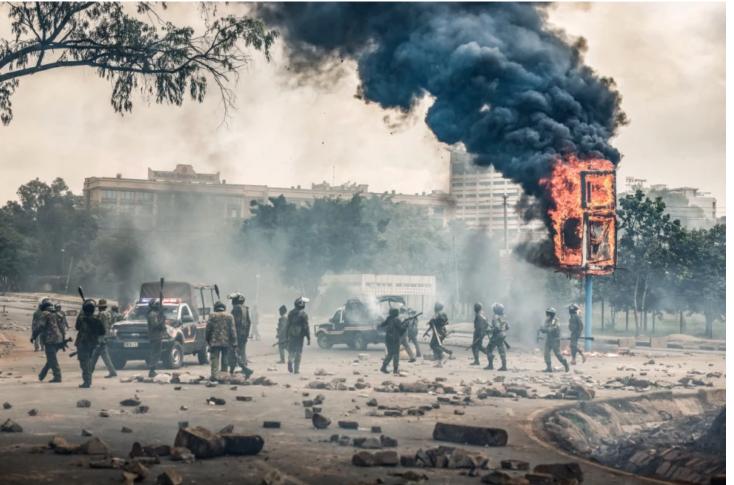The Law Society of Kenya, alongside leading civil society organisations, has threatened to take legal action against the Communications Authority if its directive to halt live broadcasts of the ongoing Gen Z protests is not withdrawn by 4 pm.
In a joint statement issued on Wednesday, the coalition—including the Kenya Medical Association and Police Reforms Working Group—condemned the CA’s directive as an unconstitutional attack on media freedom and the right to information.
The directive from CA Director General David Mugonyi instructed media houses to stop live coverage of demonstrations, citing Articles 33(2) and 34(1) of the Constitution and Section 461 of the Kenya Information and Communications Act, 1998, as justification.
“Failure to abide by this directive will result in regulatory action,” Mugonyi warned.
The organisations argue that the CA’s order is a deliberate misinterpretation of the law and a violation of Kenyans’ fundamental freedoms.
They say the move directly contradicts a November 2024 High Court ruling that declared similar interference by the Authority unconstitutional and affirmed that only the Media Council of Kenya is legally mandated to regulate broadcast content.
“We place the CA and chief executive officer on notice that we will pursue both institutional and individual legal redress should this action not be reversed by 4pm today,” the coalition said.
“This directive is a dangerous step towards suppressing fundamental freedoms in Kenya.”
They further stated that live coverage of protests, even where violence occurs, does not amount to incitement or propaganda for war, and is protected under constitutional guarantees of free expression and access to information.
The coalition warned that cutting off broadcast signals during national protests risks worsening public order by creating an information vacuum.
They also warned that the directive is already affecting emergency response efforts, with hospitals reporting challenges in coordinating medical assistance to injured protesters, bystanders, and police.
This, they said, is a direct violation of the right to safety under Article 29 of the Constitution.
The groups underlined the critical role of media in documenting protest scenes and law enforcement conduct.
“Live broadcasts can deter excessive force and human rights violations by ensuring that actions are witnessed and recorded, thus fostering accountability,” the statement read.
They also raised alarm over the risk of an internet shutdown, reminding the government that such a move would breach 2023 conservatory court orders that found any disruption to digital communications unconstitutional.
In light of these developments, the coalition has called on media houses to stand firm, comply with existing court rulings, and continue informing the public.
They also encouraged citizens to remain calm and consider downloading VPNs to stay connected in case of internet disruption.
The statement was signed by the Law Society of Kenya, Kenya Medical Association, Police Reforms Working Group, and a broad alliance of civil society and human rights organisations committed to defending constitutional freedoms.
